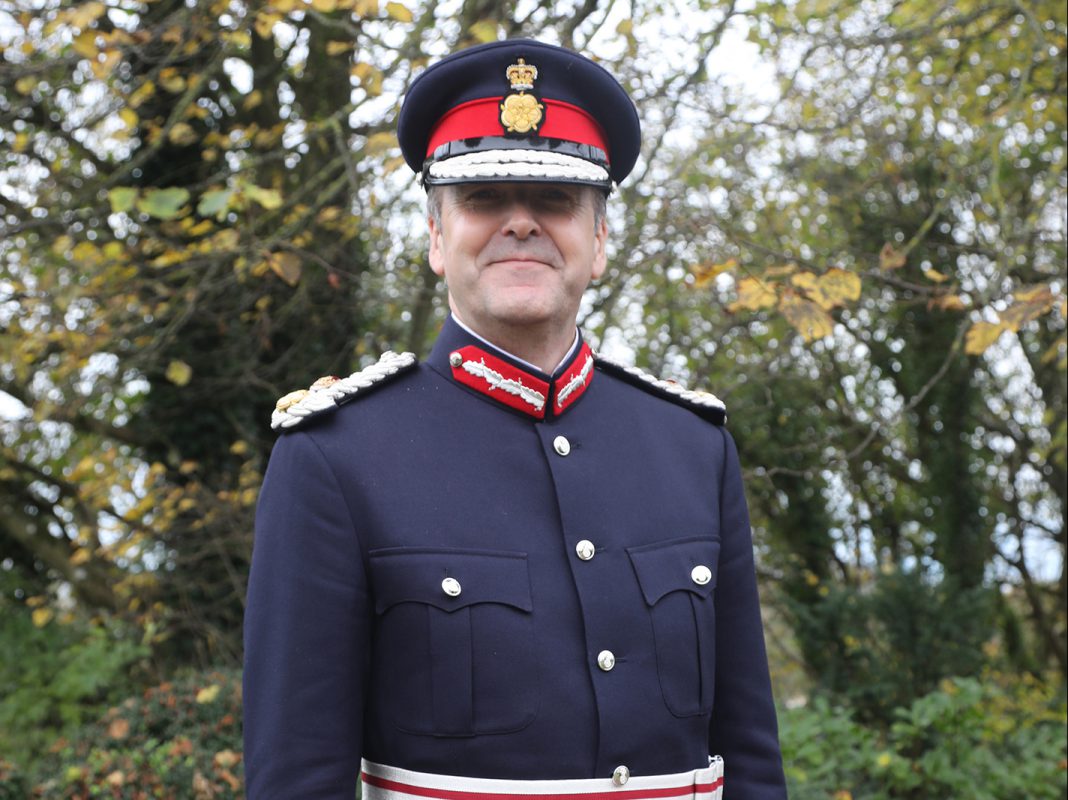Andrew Blackman was appointed by the Queen to be Her Majesty’s lord-lieutenant for East Sussex on August 18, 2021.
Lord-lieutenants were originally appointed in Henry VIII’s reign, in the 1540s, to take over the military duties of the sheriff and control the military forces of the crown. In 1662 they were given entire control of the militia. The role today is different from those of Tudor times.
Over the years Andrew has been involved with many charities, voluntary groups and appeals in the county. He was made a deputy lieutenant of East Sussex in 2017 and was appointed high sheriff of East Sussex in 2020, his declaration coinciding with the start of lockdown in late March 2020.
I asked Andrew what was the role of today’s lord lieutenant and he summed it up:
“The lord-lieutenant is the Queen’s personal representative in the county. The roles of a lord-lieutenant are many and varied, but the main formal duties are –
“To arrange visits to the county by members of the royal family, and to escort royal visitors; and to represent the Queen with the armed forces, and when presenting certain honours, medals and awards;
“To assess nominations for honours, both for individuals, and for the Queen’s Award for Voluntary Service, and to encourage good nominations for both;
“To liaise with local units of the Royal Navy, Royal Marines, British Army and Royal Air Force – in practice in East Sussex this means working largely with reserve forces and cadet units; and to perform certain duties in respect of the local magistracy”.
A broad role
In practice, the day-to-day role of a lord-lieutenant is much broader than this implies, and covers everything from supporting charities, schools, businesses and civic life, to encouraging volunteering and community cohesion.
A lord-lieutenant is in a good position to connect people and organisations with others who might be able to help, or who have similar interests and goals and it is in these areas where a lord-lieutenant and his deputies can potentially have the most impact.
The role is entirely voluntary and strictly non-political, and lord-lieutenants stay in post until they retire at seventy-five. Andrew has twenty-two years until that time.
I asked Andrew what motivated him to take up the role. “I am interested in people and their achievements and I think this is a key ingredient to becoming a successful lord-lieutenant. It is not a role that you can apply for, and there is a very exacting and wide-ranging appointment process, led by the clerk of the Privy Council.
Extraordinary good work
“So, it is a huge honour to be asked by Her Majesty to be her lord-lieutenant, and a true privilege to perform the role. The lord-lieutenant has a unique, long-term, apolitical overview of the life of his or her county, and gets to see so much of the extraordinary good work that goes on behind the scenes.
The great, and humbling privilege of being lord-lieutenant is to be able to encourage, support and thank organisations and individuals on behalf of the Queen, the county, and local communities.”
Andrew is a former art dealer, was chair of the friends of Hastings Country Park for six years, and a former trustee of the Peasmarsh Chamber Music Festival. He has immersed himself in the activities of the county and has a genuine interest all those people who are working behind the scenes and making a difference to the community.
This last week saw Andrew attending Remembrance Sunday services in the county.
Image Credits: Kt Bruce .



